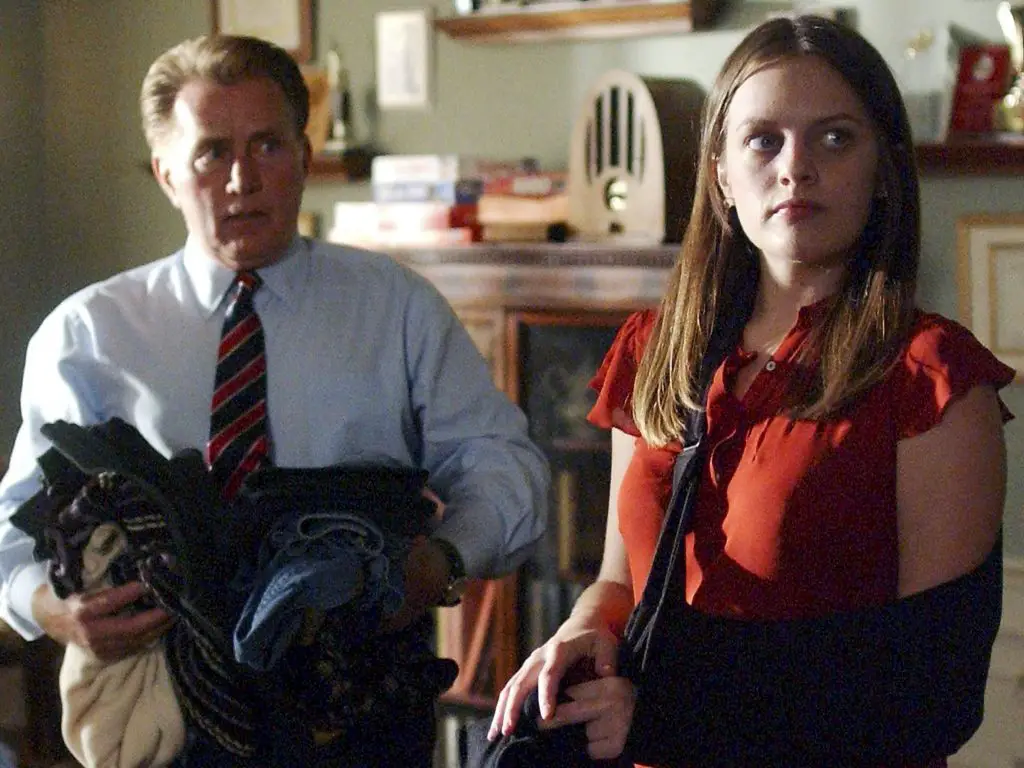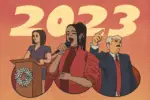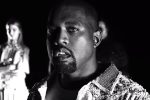Any list of influential television shows is bound to include “The West Wing,” Aaron Sorkin’s political drama masterpiece. Sorkin’s masterful dialogue, high-stakes plot lines and lovable characters make the show worth watching on it’s own, but Sorkin’s insights into the political arena make this show truly unique.
Focusing on the Democratic presidency of Josiah Bartlet and his close staff, the show chronicles the major issues that face the staff both personally and professionally. Starting on the air in 1999, some have argued that “The West Wing” deals with politics in a simpler time, one before the world of Donald Trump and extreme political divisiveness.
On the contrary, “The West Wing” gives insight into the issues and problems that were yet to face the country. The predictive nature of the show demonstrates not only the political insight of the writers and creators, but one of the major turning points in American politics.
Privacy and the Issues of Facebook
In the episode “The Short List” in the first season of the Emmy-award winning television show, Deputy Communications Director Sam Seaborn makes a speech about privacy. Seaborn claims that privacy is the defining issue of the next decade, and that every argument, debate and issue will in some way hinge on the idea of personal privacy. The internet, health records, gender identity and abortion are all specifically mentioned in the show, but Seaborn is right about how privacy has shaped our perspectives as a nation.
Recently, Facebook’s possible misuse of personal information has been all throughout the news. People are beginning to question the amount of information that is available online, from Amazon tracking your purchases to Google dictating advertisements based on your search history; privacy has become a concern central to many Americans. What the show didn’t predict is the country’s unwillingness to deal with issues these companies have created. Despite many of us knowing that the internet is full of privacy traps and phishing schemes, we all continue to live our lives as usual.
The Supreme Court
Although most of Donald Trump’s decisions have been controversial, nothing has been quite as divisive as Brett Kavanaugh’s appointment to the Supreme Court. Throughout the show, the characters deal with a variety of struggles in regards to Supreme Court appointments. Not only does the show predict the number of justices that will need to be replaced soon (Obama nominated three), but it predicts the volatile nature of these decisions.
Obama faced great opposition with his choice of Merrick Garland and was unable to get him on the court. Bartlet faces the same quandary, with vast opposition to his decision; he is only able to fill the position by having another justice resign and giving that seat to the opposition party. Although this is by no means how Brett Kavanaugh made it on to the Supreme Court, “The West Wing” showed the level of aggression and controversy that would begin to revolve around those seats.
CJ Cregg and #MeToo
Bartlet’s vice president, John Hoynes, ends up resigning due to a sex scandal and the fact that he cheated on his wife repeatedly. When he tries to make a political comeback by writing a book, Hoynes has some very interesting conversations with the president’s press secretary, CJ Cregg. A fiery, independent and incredibly intelligent woman throughout the show, it is clear that there is some history.
Although somewhat covertly, Cregg tells one of her co-workers that she went up to his hotel room with him and the audience is meant to assume the rest. Although it appears that the relations were consensual, it does raise questions about the influence of powerful men and how they treat women in the workforce. In an era where major political figures and commentators have been brought down for their systemic and continued improper behaviors, it seems that the fictional John Hoynes may have been the first.
Speaker of the House Haffley
Later in the fifth season of the show, the speaker of the house is replaced with Jeff Haffley. Haffley is not only more conservative than his predecessor, but he is less likely to negotiate. Many of the House staffers are frustrated by this new leadership and struggle to get along with him and his staff in any capacity.
It would be easy to say that this is simply a shift to show a different side of politics, but this is indicative of the rise of conservatism. In the past two decades, moderate politicians have been pushed out of the process in favor of more liberal and more conservative leaders. The show predicts this shift by showing the difficulties of this type of leadership.
Government Shutdowns
In dealing with Speaker Haffley during budget negotiations, he is unwilling to compromise on the budget. He, along with the president, end up shutting down the government because they cannot come to an agreement about budget cuts.
Although government shutdowns are by no means new, the show does predict the challenges that would face upcoming politicians. Government shutdowns were not necessarily intended to be used when politicians couldn’t agree, yet they have been happening more frequently in the modern era.
The Challenges in Diverse Leadership
In the final season of “The West Wing,” Matthew Santos, a Latino from Texas, runs for president. Although there are innumerable similarities between Santos and the future campaign of Barack Obama, the show deals with the issues that many people of color deal with in the political sphere.
During his campaign, he is often asked to speak on behalf of the entire Latinx community. In the episode “Undecideds,” Santos faces these issues head-on, discussing that he is tired of being the spokesperson for every Hispanic person in the country.
Since the show, the country elected the first African American president, has steadily worked to diversify the House and Senate and has made some real steps toward diversity. Not only does the show preface this change in America, but it chronicles the unique challenges that these politicians will face.
















